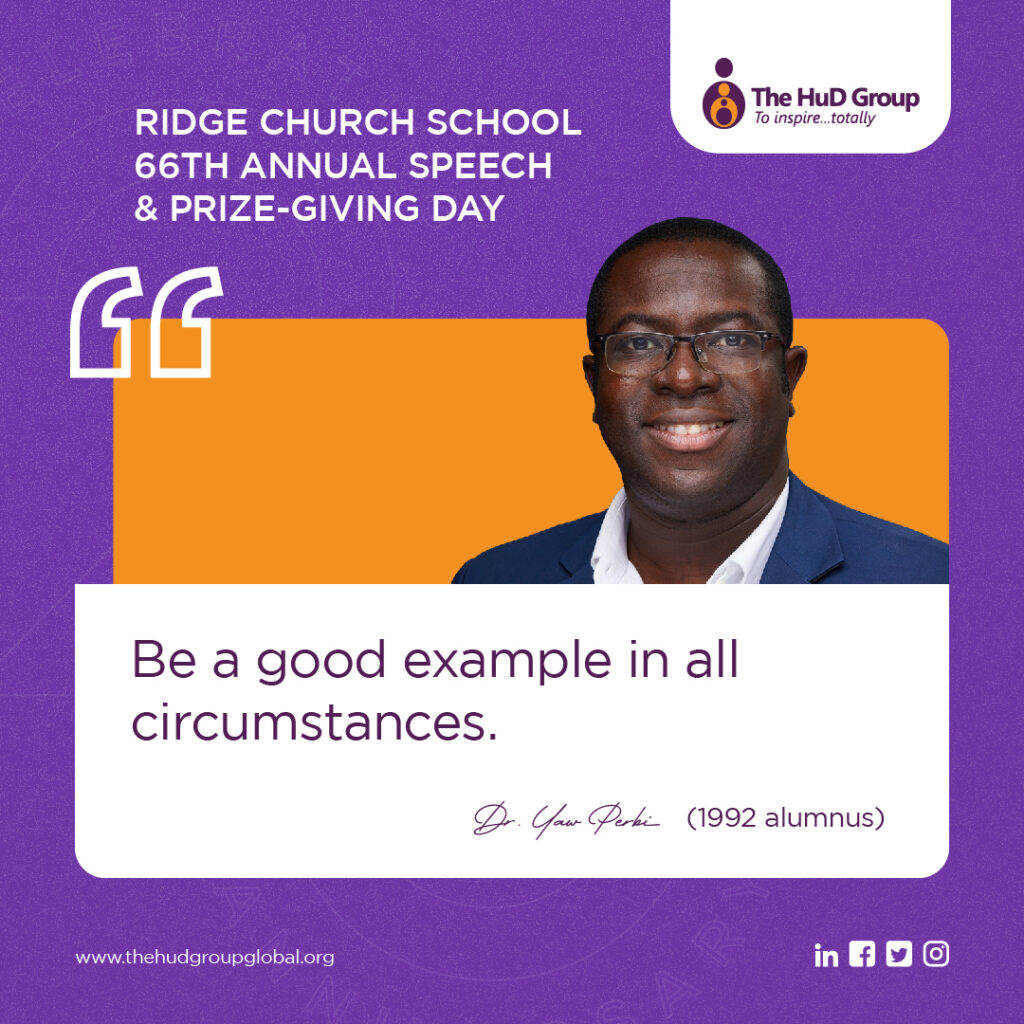
#DIFFERENTIATION: A DOCTOR’S PRESCRIPTION FOR EVERYONE ON SOCIAL MEDIA
Photo: #RedClay exhibit of a variety of cobbler boxes at Ibrahim Mahama’s museum and gallery in #Tamale, northern #Ghana.
Every now and then I lose a hitherto social media ‘friend.’ The peak was during the days of the #Trump presidency. Yesterday, I was amazed at the sort of hero-sanitising that won’t make certain followers of a Ghanaian presidential aspirant (former president) accept that he wasn’t an angel even though the evils of the incumbent and (our short memories) are making the former look better than he really is (don’t forget he was kicked out after one term for a reason). Gosh! This sounds so much like Trump, who’s also seeking re-election across the Atlantic, after being a one-term president.
When I was an active, multiple award-winning #Toastmaster, we were cautioned to avoid topics bordering on #religion, #politics and #sex because they were ‘highly inflammable.’ These three tend to run our emotions high and our intellect low, leaving most with neither high IQ nor high EQ!
Yet, what is the hidden cost of not being oneself or sharing one’s honest opinions? It seems that even on one’s own social media wall–their own piece of the metaverse real estate–one is bullied and insulted should they state their honest opinion about these same ‘three musketeers’.
We all could use some good old #differentiation! Differentiation of self is a psychological state and skill where someone can maintain their sense of self, identity, thoughts, and emotions even though emotionally or physically close with others, even in intense or intimate relationships.
“Healthy groups allow every member to express their individuality without that difference being seen by other group members as a threat.” That’s differentiation. Enough of the herd mentality already!
Not even my wife and I agree on everything. But we will not treat the other as an ‘It’ (instead of a ‘Thou’, to reference Martin Buber) or be less of ourselves because of a fear of offending the other, if we are emotionally intelligent and emotionally healthy people.
I refuse to be cowered into keeping my own social media wall free from my own opinions because of poorly differentiated individuals of other religious and/or political persuasions. It is my wall, and in the words of the late Steve Biko, “I write what I like.” Some people are simply emotionally immature, unintelligent and unhealthy and being less of me won’t necessarily help them become more of themselves or make the world any better.
Can you disagree without being disagreeable? That’s a basic #differentiation test. The more highly differentiated one is, the more they can be themselves, vehemently argue out their point and still love and respect their ‘opponent’ (maybe not in life but just on a matter).
Jesus Christ, the greatest teacher that ever lived, was a very highly differentiated person. He would receive sworn enemies hospitably and even respectfully dialogue with his detractors. That didn’t change who He was or the Truth. If your only recourse to those you disagree with is silence or violence, insults or blocking, then you need a healthy daily dose of #differentiation. Especially on social media.
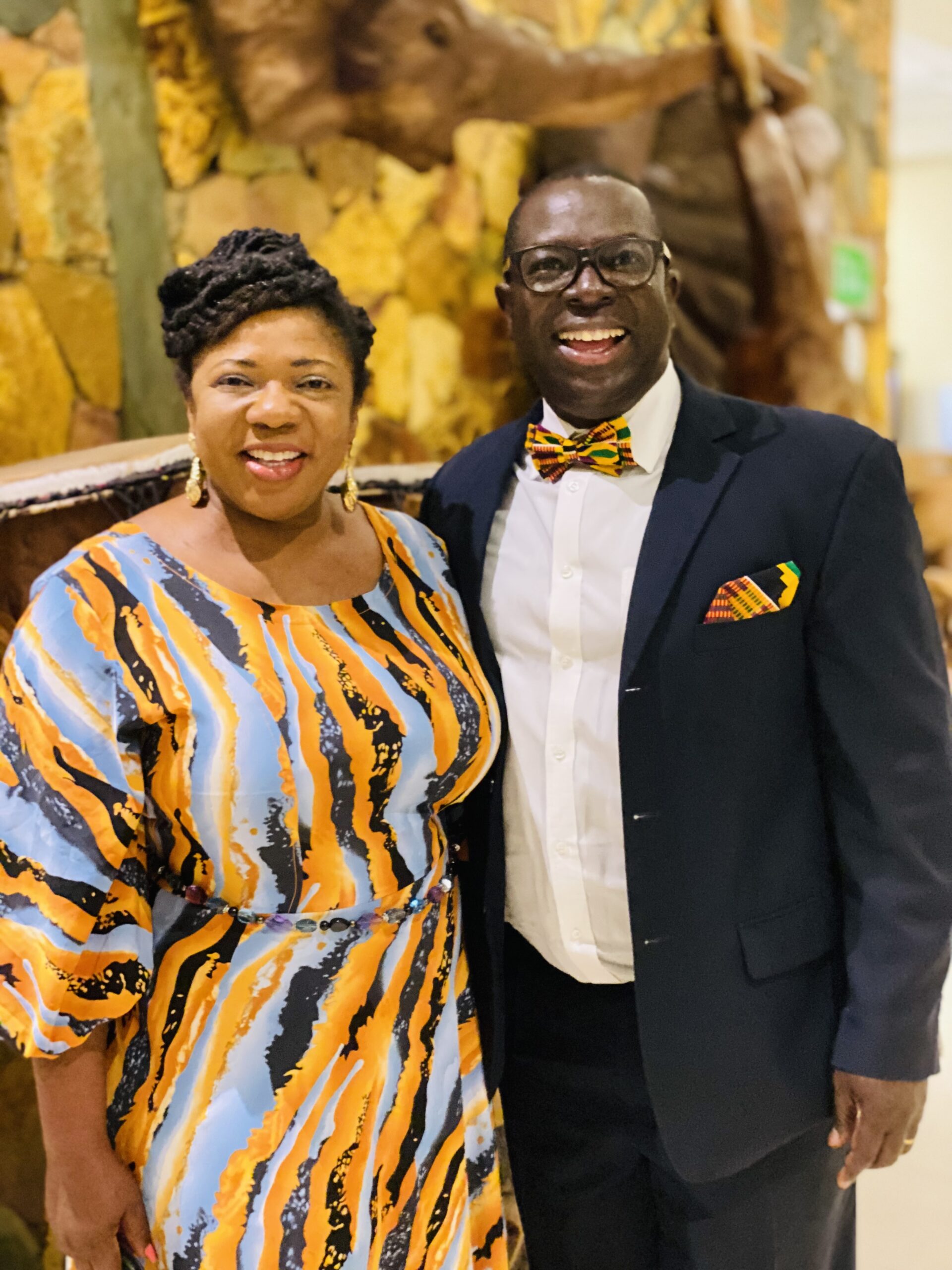
Meet The Nursing Doctor That Beat “Medico or Suicide!” Fair and Square
In those mid ’90s, one had to do a year (Level 200—if from the old O’ and A’ level system) or two years (Levels 100 and 200—from the new Junior and Senior Secondary School system) to see who qualifies, per superior GPA, to be called for the University of Ghana Medical School interview.
If my memory serves me right, of the nearly 900 of us, only a third made the interview list; and of that, only another third were admitted to medical (and dental) school. Folks were so bent on making the final 100 who will don the coveted white coat and carry boxes of bones on and off the med school bus that the mantra was “medico or suicide!” It was a serious threat in those heady undergraduate days.
I personally don’t recall anyone who didn’t make the cut actually physically killing themselves but many died emotionally, mentally and even socially. That nonsense killed many brilliant minds. I know of some that had to take a year off to heal; some even left the country for a bit. I still meet people who seem to be a pale shadow of themselves prior to this deathly mantra.
CAREER = PROFESSION + FIELD
I hope that career and counselling services have improved for the current generation but I can tell you for a fact that most of us were too young, back in the 1990s, to even definitely know what we wanted, career-wise. O of course many of us thought we knew, just like we thought we knew who we wanted to marry. Probably 0.0001% of us ended up marrying who we ‘so sure’ about.
In fact, many of us mixed up the passion for the general field (healthcare) with a passion for a particular profession (medical doctor). I was fortunate to learn the CAREER = PROFESSION + FIELD formula from the What Colour is Your Parachute? publication and many in that biological sciences pool could’ve found use for it too. Take my friend Retha (true story but not her real name), for example. She was a couple of years behind me. She didn’t make the dreaded med school list. And you wouldn’t believe the kind of hell her parents subjected her to, as a result. Thankfully she weathered the storm and did great at her plan B: Psychology. She loved it and excelled at Clinical Psychology in particular so much that she continued with graduate studies and eventually landed a PhD in it, in the United States of America.
Think about it: she still ended up in the field of healthcare which she was passionate about but realised she didn’t need to have the profession of a medical doctor to pursue that passion. The competent psychologist she became satisfied the same passion and fulfilled her calling. In any case, she’s still called “Dr.” today in her practice and who the heck cares if she earned the “Dr.” title from med school or from grad school, especially if she’s doing one heck of a good job in the clinic.
THE NURSING DOCTOR
These thoughts above were provoked by attending a recent Doctors in Business banquet at the Holiday in Accra, Ghana. As a guest keynote speaker, I had the privilege of sharing the high table with a course mate from Level 100 at the University of Ghana, Legon. We were both introduced as “Doctor” but I could swear she wasn’t in med school with me. By the end of the night it turned out that both the MC and myself were right. She was not med school with our batch, and she isn’t a medical doctor (I was right); but she is a doctor alright, a doctor in nursing (the MC was right).
“So I did biological sciences with you guys at Level 100 because I came to Legon as a science student,” Dr. Lillian Akorfa Ohene (PhD, MPhil, PN, BSc) intimated to me, but fortunately she wasn’t of the “medico or suicide!” tribe. “I branched off to nursing after level 100 because nursing was my first choice.” I’ve been so impressed that she knew exactly what she wanted even back then (forget the prestige of med school) and went straight for it. It reminds me of a brilliant 4.0 (perfect GPA) friend of mine who could’ve easily made it to med school but also chose to do Nutrition and Food Science, in the steps of her food scientist dad. She’s doing well in the industry, a leader of leaders.
Beyond knowing what she wanted and decisively moving towards it despite the definite distraction of medicine, Lillian’s story is also serendipitous as “the road rose to meet her.” She continues the conversation thus: “…but it happened that at that time, the nursing program started at level 200.”
IMPRESSIVE CURRICULUM VITAE
Today, Dr Lillian Akorfa Ohene is a Senior Lecturer and the Head of Department for Public Health Nursing at the University of Ghana’s School of Nursing and Midwifery. She is a certified paediatric nurse, who holds a PhD in Nursing from De Montfort University, Leicester, UK, a Master of Philosophy and Bachelor of Science in Nursing, both from the University of Ghana.
Lillian has over twenty (20) years of practice and teaching experience in higher academic institutions. Her research interest focuses on holistic care of sick children and the well-being of women and their families. As a qualitative researcher, she has explored extensively, the concept of family-centred care among sick children in the Ghanaian context. Some of her findings have been published widely in both local and international peer-reviewed journals. She also serves as a reviewer for several international journals.
On the international stage, Dr Ohene is a member, and a faculty counsellor of Chi Omicron Chapter of the Honor Society of Nursing, Sigma Theta Tau International (STTI) at Indianapolis, USA, a member of West Africa Postgraduate College of Nurses and Midwives (WAPCNM) and a foundation fellow of Ghana College of Nurses and Midwives (GCNM).
Dr. Ohene is also a Queen Elizabeth Scholar (QES) and serves as a mentor to her students, nurses and midwives locally and internationally. She has supervised over a hundred research projects, from undergraduate to PhDs. She is passionate about students’ academic success. The reason for our crossing paths last weekend is that she currently serves as a patron for three different student associations at the University of Ghana, of which Doctors in Business (DIB) is one. She serves on the board as well. Lillian is a family woman, married with three young adult children.
LILLIAN LESSONS LEARNT
Don’t die when life doesn’t go your way (death isn’t only physical); live to make so much of the further opportunity that rises to meet you that it’s a dis to that previous appointment (‘disappointment’). Through self-awareness, from introspection as well as feedback (take coaching and counselling seriously), know who you are and what you want and go for it. That’s where your future lies; don’t get distracted by the bling (even if its a shiny jewel like medicine). Yes, pursue your passion but be careful not to confuse the field and the profession. And remember that when you make a move, even when you don’t know what the next move after that step is, serendipity happens. Just make the move; it’s actually not moving at all that just might be suicidal.
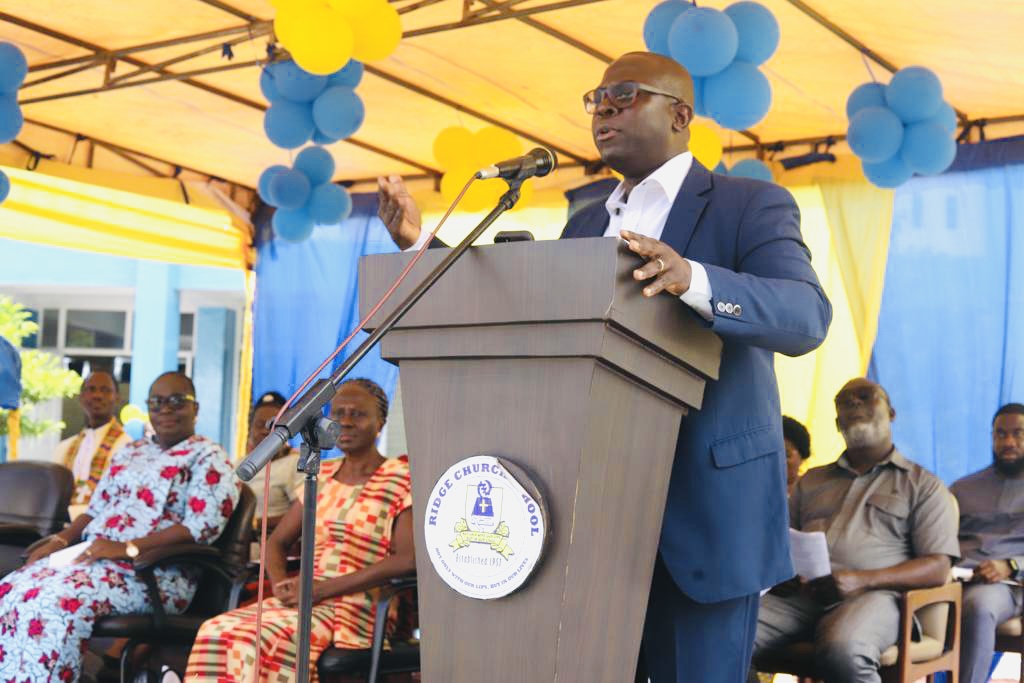
Be a Good Example in All Circumstances ~ 66th Annual Speech & Prize-giving Day, Ridge Church School
66TH ANNUAL SPEECH & PRIZE-GIVING DAY, RIDGE CHURCH SCHOOL
SPEECH BY DR. YAW PERBI, Global CEO of The HuD Group
26th August, 2023
Chairperson, Guest of Honour, School Board and Management, Teaching and Non-Teaching Staff, Parents and Learners, Invited Guests, (all protocols observed), good afternoon. It is an honour to return to Ridge Church School to address you today after leaving here 31 years ago. And it is a double honour as this is the second time I’ve been invited to do so over the last two decades.
The theme chosen for this year is BE A GOOD EXAMPLE IN ALL CIRCUMSTANCES and we shall consider it in three simple ways:
- WHAT IS?
- WHO SHOULD?
- WHY MUST?
1. BE A GOOD EXAMPLE IN ALL CIRCUMSTANCES: WHAT IS?
You must’ve heard from my introduction that my wife and I are blessed with seven biological children. Well, on Monday morning, our delightful six-year-old daughter, our fifth child called Nana Ahomka, came to tell me, “Daddy, I should be a leader at AWANA,” a children’s Bible training program. When I asked who a leader is she said, “Someone who sets an example for everyone else to follow.” I replied, “You got that right girl,” and that gave me the essence of my message today.
Today, the word “leader” is overused and abused. But for a moment, forget about all the 360 plus official definitions (yes) and consider this: a leader is someone who sets an example for others to follow. A good leader sets a good example; a bad leader does the opposite. Seeing it that way, a lot of so-called ‘leaders’ are really not good ones, even if they are in powerful political positions, are sensational speakers or even have top professions and enviable riches. Recently, we have seen our parliamentarians insulting and throwing physical blows in parliament. That is bad leadership. And it needs to be called out for what it is.
So WHAT IS being a good example in all circumstances? Good leadership or Godly leadership.
2. BE A GOOD EXAMPLE IN ALL CIRCUMSTANCES: WHO SHOULD?
Everyone of us, especially you, young ones—YOU ARE NOT TOO YOUNG TO BE AN EXAMPLE.
The Little boy Samuel was only 12 years old and could hear God’s voice at a time when “the word of the LORD was rare; there were not many visions.” [2] He heard God’s voice and told the ‘Papas’ of the land what to do. Ghana could use some Samuels right now—YOU!
That is what Paul the mentor meant when he said to his teenage mentee Timothy, “Don’t let anyone look down on you because you are young, but set an example for the believers in speech, in conduct, in love, in faith and in purity.” [3] In fact, sometimes it’s the adults that actually encourage us to do the wrong thing: I shall never forget my BECE experience in 1992 when a female invigilator who noticed I had completed my work, suggested to me to write the answers on an eraser so she could give it to another person who was struggling! Imagine that. An invigilator! I said, “No Madam. That is not right.” She was shocked.
Sometimes people don’t like us for not following their bad example or for calling out their bad example. But in a good society, good examples are reward. For example when I went to Achimota School, my good example was observed by the staff and I was selected to represent Achimota in exchange programme in America. It is also good examples who are selected to be prefects here, right?
Even at the university, I had to resist cheating in exams and started an organization called The HuD Group (The Human Development Group) [4] to help young people to become good leaders. When I got a national award for this, handed to me by then then Vice President of Ghana, Hon. Aliu Mahama, as the Newmont Ghana Highest Achievement Award winner at the Millennium Excellence Youth Awards in 2006, our Minister of Health then, Major (Rtd.) Courage Quashigah, wrote me a congratulatory letter, part of which read:
“We in the health sector are very proud of you and urge you to continue to be an Outstanding Achiever… It is my hope that you will bring your charisma and devotion to bear on every youth you encounter and they in turn will emulate your leadership example. On behalf of the entire health sector and on my own behalf, please accept my congratulations.” [5]
So WHO SHOULD be a good example in all circumstances? Everyone, especially you young ones!
3. BE A GOOD EXAMPLE IN ALL CIRCUMSTANCES: WHY MUST?
In 1792 King Louis XVI (16th) was taken from his throne by some rebels and imprisoned. His young son, the prince, was taken by those who dethroned the king. They thought that inasmuch as the king’s son was heir to the throne, if they could destroy him morally, he would never realize the great and grand destiny that life had bestowed upon him. They took him to a community far away, and there they exposed the lad to every filthy and vile thing that life could offer. They exposed him to foods the richness of which would quickly make him a slave to appetite. They used vile language around him constantly. They exposed him to lewd and lusting women. They exposed him to dishonor and distrust. He was surrounded 24 hours a day by everything that could drag the soul of a man as low as one could slip.
For over six months he had this treatment but not once did the young lad buckle under pressure. Finally, after intensive temptation, they questioned him. Why had he not submitted himself to these things why had he not partaken? These things would provide pleasure, satisfy his lusts, and were desirable; they were all his. The boy said, “I cannot do what you ask, for I was born to be a king.” [6]
Ladies and Gentlemen, we are all born to be kings and queens, princes and princesses, in the kingdom of God. WHY MUST you be a good example in all circumstances? You were born to be royalty.
CONCLUSION
In conclusion, be a good example in all circumstances. “The time is always right to do what’s right,” as Martin Luther King told some (Oberlin) students. Be an example, be a leader. As young as you are, even if everyone is doing the wrong thing and adults are pushing you to, be a prince/princess because:
1. that’s who you are—you were born to be a leader, to be king/queen
2. that’s what God’s word says and God expects
3. it’s for your own good (there’s no law against being a good example or punishment for it)
4. society needs it today and will remember you in history
5. Almighty God will reward you. Say, “Heaven backs me when I do the right thing!”
Be a good example—whether you are 6 or 60! Be the king and queen you were born to be. Be a good example in all circumstances, BE A GODLY LEADER!
References
[1] https://www.bbc.com/pidgin/tori-59738001[2] 1 Samuel 3:1, NIV
[3] 1 Timothy 4:12, NIV
[4] See www.thehudgroupglobal.org
[5] Portion of letter by Hon. Minister of Health in 2006, emphasis mine
[6] Sean Covey, The 7 Habits of Highly Effective Teens (and other sources)

Competence is Character.
Photo credit: Jethro and Moses, watercolor circa 1900 by Jacques Joseph Tissot (1836–1902), courtesy of Wikimedia.
While a lot of #leadership thinking is that leadership comprises #competence AND #character, for others like Jethro of Midian, competence IS character. Discuss.
For the Eager Beaver:
“Listen now to me,” Jethro advised Moses his son-in-law regarding leadership delegation, “Select capable men from all the people–men who fear [revere] God, trustworthy men who hate dishonest gain–and appoint them as officials over thousands, hundreds, fifties and tens” (Exodus 18). Jethro, also known as Reuel, was a Kenite shepherd and priest of Midian.

How to Apologize Properly: Seven Succinct & Sturdy Steps.
Let’s talk about apologizing properly. Some people are too prideful to apologize when they err (including me, sometimes). That’s so wrong. But even for those who know they are in the wrong and want to make things right, they often still get making things right wrong.
Imagine my shock, when l was scheduled to have a meeting with one of the top CEOs in Africa and l kept waiting and waiting and waiting and… this person wasn’t showing up. So I signed off from Zoom about 20 minutes later and sent a message: “I hope you’re okay…” etc. etc.
It wasn’t until the next day when this leader sent what was supposed to be an apology. All this person said was, “Apologies.” End of story. What?! I was shockprised. “Is that how to apologize?” I soliloquized. Then l began to understand why only a couple of weeks earlier one of my close friends who is also a top executive of a Ghana Club 100 company shared with me how one of my daughters had totally shocked him. Apparently, she had stepped on him or something of the sort (l forget) but that wasn’t the source of the shock. It was how she apologized. That so astonished him and he said to himself, “I’ve got to learn how to apologize this way.” He is now actually teaching his family that this is how to apologize properly henceforth, when you do something wrong.
This is the way to apologize, for acts of commission (doing what you’re not supposed to do) and omission (not doing what you’re supposed to do) alike:
- Mention the fellow’s name: “Anyele.” “Frankie.” Mentioning a person’s name calls their attention, makes it personal, and connects us to the caller.
- Spell out your offence: “l missed our appointment” or “l did not put the money in the bank like you had asked me to”
- Acknowledge you erred, openly admitting it: “l am wrong”
- Let them know you regret it, verbally articulating it: “I am sorry”
- Ask for their pardon: “Please forgive me.”
- Wait for their response (hopefully they can process right there and then and also give you a response in the affirmative).
- Thank them (no matter the response).
So here’s an illustration of how my CEO friend should’ve apologized: “Yaw. I totally missed our appointment and stood you up. I am wrong. I am sorry. Please forgive me.” This is the way to apologize properly. Just saying “apologies” or a half-hearted “oh sorry” in a huff doesn’t cut it. I am learning to do this better and better because I realize that sometimes when I’m not really really sorry I don’t want to go through this process and certainly don’t want to make the above string of statements.
Giving the other person the opportunity to forgive you by saying “please forgive me” is very empowering for the offended party. It kind of disarms the offender simultaneously too. I hope you’ll practice this and that true transformation will transpire because you are truly deeply sorrowful for what you did wrong even if it’s the slightest thing. Remember, “Ms. ABC, I did XYZ. I am wrong. I am sorry. Please forgive me.” Then await their response and thank them. This is the proper way to apologize. Some even go an extra length to state what they’re going to do to make things right and/or renegotiate the promise.
I am wary of people who are not self-aware enough to recognize they’ve done wrong, whether upon self-reflection or via feedback. And I don’t trust those who won’t say sorry after they’ve been made aware of it, and do it seriously and sincerely. I won’t do business with them because they have low integrity. Of course ,the first layer of integrity is keeping one’s word. But when inadvertently through extenuating circumstances one is unable to, to keep one’s integrity we still need to acknowledge that our integrity is unraveling (not just pretend we never gave our word in the first place) and then still honour our word by apologizing in the above manner and renegotiating.
Apologizing properly is not a trivial matter. It has saved personal relationships, families, communities, organizations and even nations. Let’s begin to take apologizing properly and sincerely seriously: on a personal level, then in our families and communities, ultimately in our corporate world and national life. Now, go and do likewise and teach the people at your workplace, on your team, and even your spouse and cubs to do same. That’s the way to go.

On Saving a Nation.
The story is told of a man who traveled from a developing country to a more economically advanced one in search of a better life. Upon arrival, the man was shocked to find that no one managed the local milk shop. Customers would take what they needed from the refrigerator, leave the exact amount of money for their purchase, and be on their way. Neither the milk nor the money was under lock and key. This would never happen in my country, he thought.
The only thing that surprised the man more than the honor system of the unmanned milk dispensary was the price of the product. The milk was cheaper here, even though his country had more milking cows than people—and in turn produced more milk. How could this be? Then it finally hit him. The higher price at home included the additional costs of dishonesty and thievery.
In his country, locks would be purchased for the refrigerator and money box. A worker would be hired to conduct the transactions. Another person or two would be hired as security, in addition to needing expensive CCTV cameras. This is not to mention the added logistical and utility costs from inefficient or unreliable systems. It all adds up, reflected in the price of a single bottle of milk.
What the society of the man’s home country lacked in cultural values, it paid dearly in economic value—in other words, a higher cost of living than a country with a higher standard of living.
The commercial cost of values
What makes a nation great and strong, ultimately, is its people and their values. Societal values determine what people consider good or important, and this informs how they act. If we consider present-day Ghana in this context, we are likely to be disappointed.
Money and material possessions. Greed and selfishness. These values permeate our society. So I thought it wise to speak to the issue of values in terms of commercial costs. My hope is that even those who place money and materialism and personal gain above all else—including the common societal values espoused in our national anthem and pledge—will realize that real values, such as service and integrity, still affect their bottom line. They will make more money with them, than without.
Consider that Warren Buffet, one of the world’s richest men and most successful investors, advises leaders to look for three things when assessing job candidates: intelligence, initiative, and integrity—but to weigh integrity above all else. If a worker lacks the latter trait, Buffet says, “the first two will kill you. Because if you’re going to get someone without integrity, you want them lazy and dumb.”
It is with near-total trust that we poke an opaque tin of milk and pour out its content without a second thought. We’ve got to trust the regulator, trust the manufacturer, and trust the entire supply chain. A friend and former senior manager in a company that produces perishables once told me that the company would destroy whole batches of product at the slightest hint of compromised quality, because the negative cost of their brand being brought into disrepute would be much greater in the long run than the temporary loss of the thousands of dollars flushed down the drain by an honest act.
Values at the core of a nation
Little drops of values at the individual, family, organization, and sector levels of a society eventually coalesce to make a mighty nation. This is how I have long thought of Ghana. As a mighty nation, rich in social and cultural values to emulate.
I grew up in the early 1990s, when neighboring countries like Liberia and Sierra Leone were decimated by war. Hordes of refugees made their way into Ghana. As a World Vision Youth Ambassador, I toured refugee sites in the country with donors, and the tentative nature of life in tents made me tear up. I have always been grateful to God that Ghana in my life has been an island of peace in a sea of strife.
But bombs and bullets are not the only way to destroy a country. Rather than exploding in external violence, a society can implode through internal valuelessness. I fear Ghana is on this path. I see it all around. We have swung from one extreme to another in a few generations. My grandfather cared little about money or material possessions. He was not alone. How often can we say such things now?
Too often, money and materialism seem to the motivation for the world around us, even at the peril of our lives and at the cost of future generations. Look no further than the dastardly acts of inordinate illegal mining (galamsey), stinky corruption in politics and public service, brazen cheating in exams, rampant illegal practices which combine modern internet-based fraud with African traditionalist rituals (sakawa), food sellers using dirty (waste) water to cook, changing expiry dates on expired medicine or outrightly selling fake medicine… need I go on?
Building the Ghana we want, rooted in values that matter
I worry that in our hurry to catch up with the rest of the industrialized world, we are focusing on infrastructure, industry, and education without a values-based foundation. For instance, STEM education is being touted as the panacea for the challenges we face. But what use is STEM without roots? STEM or any other body of knowledge must grow from a deeply rooted network of shared social and cultural values and norms. Otherwise, patients needlessly die, shoddy infrastructure inadvertently collapses, common funds are looted, and justice is denied.
Ghana is at a crossroads, not just economically, but also culturally. There is a commercial cost to values that must be recognized and incorporated into the policies needed to set Ghana on a more prosperous economic course. Thankfully, influential Ghanaians are talking about it.
Earlier this year, the African Center for Economic Transformation (ACET), which is based in Accra and was founded by Dr. K.Y. Amoako, a Ghanaian, organized a retreat at at the Peduase Valley Resort for more than 50 people representing various civic and political stakeholder groups and organizations in Ghana. The topic of conversation was a new initiative that is set to launch officially in the coming days: the Compact for Ghana’s Political and Economic Transformation.
A roadmap for a stronger democracy and lasting economic prosperity, the Compact is a hopeful approach because it is rooted in strengthening our common values. I attended the Peduase Valley retreat, and values featured heavily in the discussion. It was stressed that the quest for Ghana’s economic and political transformation is meaningless unless it is underpinned by a radical shift in our mindset and values.
Indeed, the discussion focused on identifying values we can glean from the national anthem, the pledge, and the lyrics of “Yɛn Ara Asaase Ni,” written almost a century ago by Dr. Ephraim Amu, one of the fathers of our nation. From the conversation, values such as honesty, selflessness, hard work, and loyalty stood out.
Such discussions must continue in Ghana. Particularly, the all-binding value of integrity needs to be ingrained in every stratum and segment of our national life if we are to realize a greater Ghana, rooted in values that matter rather than tarnished by ones that do not.
Although less dramatic, a definite way to destroy Ghana without bombs or bullets is by eroding the very values that birthed the nation, slowly but surely. “Whether or not this nation prospers,” goes the resounding anthem from Dr. Amu, “clearly depends on the character of the citizens of the nation.”
Dr. Yaw Perbi has practiced medicine in both his home country, Ghana, and with the United Nations Operation in Cote d’Ivoire as a U.N. peacekeeper. He is the founder and Global CEO of The HuD Group, inspiring holistic emerging leadership development in 25 countries on all continents. He is co-founder of PerbiCubs, an edtech company impacting over 8,000 children in Ghana. Yaw is a Fellow of the Africa Leadership Initiative as well as the Aspen Global Leadership Network.
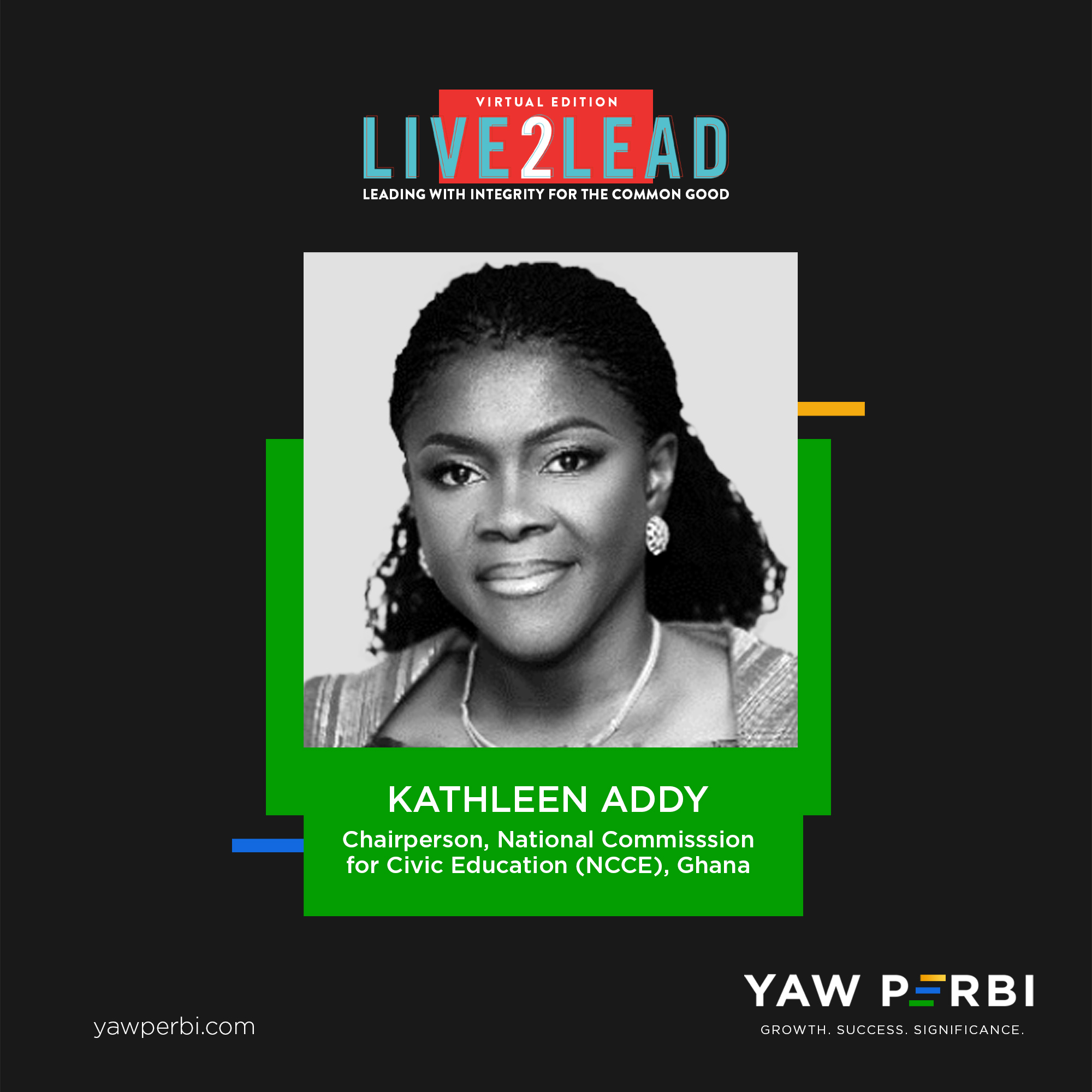
Meet Kathleen Addy, the Lady with Gravitas for Civilitas
Kathleen Addy is the Republic of Ghana’s National Commission for Civic Education (NCCE) chairperson, appointed in 2022 by the president of the Republic from her Deputy Chair of the Commission role. Ms. Addy had been in charge of Finance and Administration since 2017. Kathleen is highly regarded as a civic activist with particular interest in women’s empowerment as well as accountable and responsive governance, and has supported different civil society groups fighting for good governance and women’s rights in Ghana.
She was once upon a time a Research and Communications Officer at the Center for Policy Analysis focusing on Women’s Economic Empowerment and was the Afrobarometer Communications Manager at the Center for Democratic Development. Kathleen holds a first degree in Psychology and a Master’s in Communications from the University of Ghana, Legon. She is also an alumna of Achimota School and Holy Child School. In her role as a Chairperson of the NCCE, Ms. Addy brings her expertise and vast experience in the development sector, as well as her passion and drive to bear on the work of the commission.
Gravitas was one of the ancient Roman virtues that denoted “seriousness.” It is also translated variously as weight, dignity, and importance and connotes restraint and moral rigour. It also conveys a sense of responsibility and commitment to the task. Kathleen’s got gravitas. Meanwhile cīvīlitās, the feminine Latin word that speaks to politics and the art/practice of government, also connotes courteousness, politeness, dignity, civility, moderation, and restraint. Not only has Lady Kathy got all these, she has a passion to see every Ghanaian born of a woman possess these, and in abundance too, hence her passion for civic education.
INTEGRITY AND A NEW GHANA
At the just-held Live2Lead conference, the First Lady of Civilitas began her submissions with a chuckle, as she noted with candour how the public sector from which she hails has become the poster child for lack of integrity. She herself shared how coming from think tanks and CSOs, she got a culture shock when she first landed in the public service in 2017. “A lot of people don’t even know what the wrong thing is because wrong has been normalized,” she asserted.
But she ended with a ROAR. By the time she had shared how ‘friends and family’ who expected favours like getting an upper hand in the commission’s hiring had had a rude shock that she only gave them enough support to follow due process, the audience would doff their hats for such a principled public sector leader. We trust that the many public sector folks sponsored to attend were inspired to also lead with integrity, right in the corner where they are.
CONCLUSION
Live2Lead Ghana was wildly successful. We give glory to God. The plan to strategically rope in the public sector was a good idea and well-executed. We are grateful to all our corporate partners whose generous sponsorship made this possible, and the participation of several emerging leaders from our schools and universities. The dozen or so organizations and companies who ensured 10 or more of their leaders were present are true patrons of a Ghana that can be lead in integrity for the common good. One bank sponsored nearly 60 of their leaders, while another invested in 40 of theirs. Poco a poco, intentionality about leadership development will become a culture that rewires our nation for growth, success and significance.
God bless our homeland Ghana with gravitas for civilitas, and make our nation great and strong.
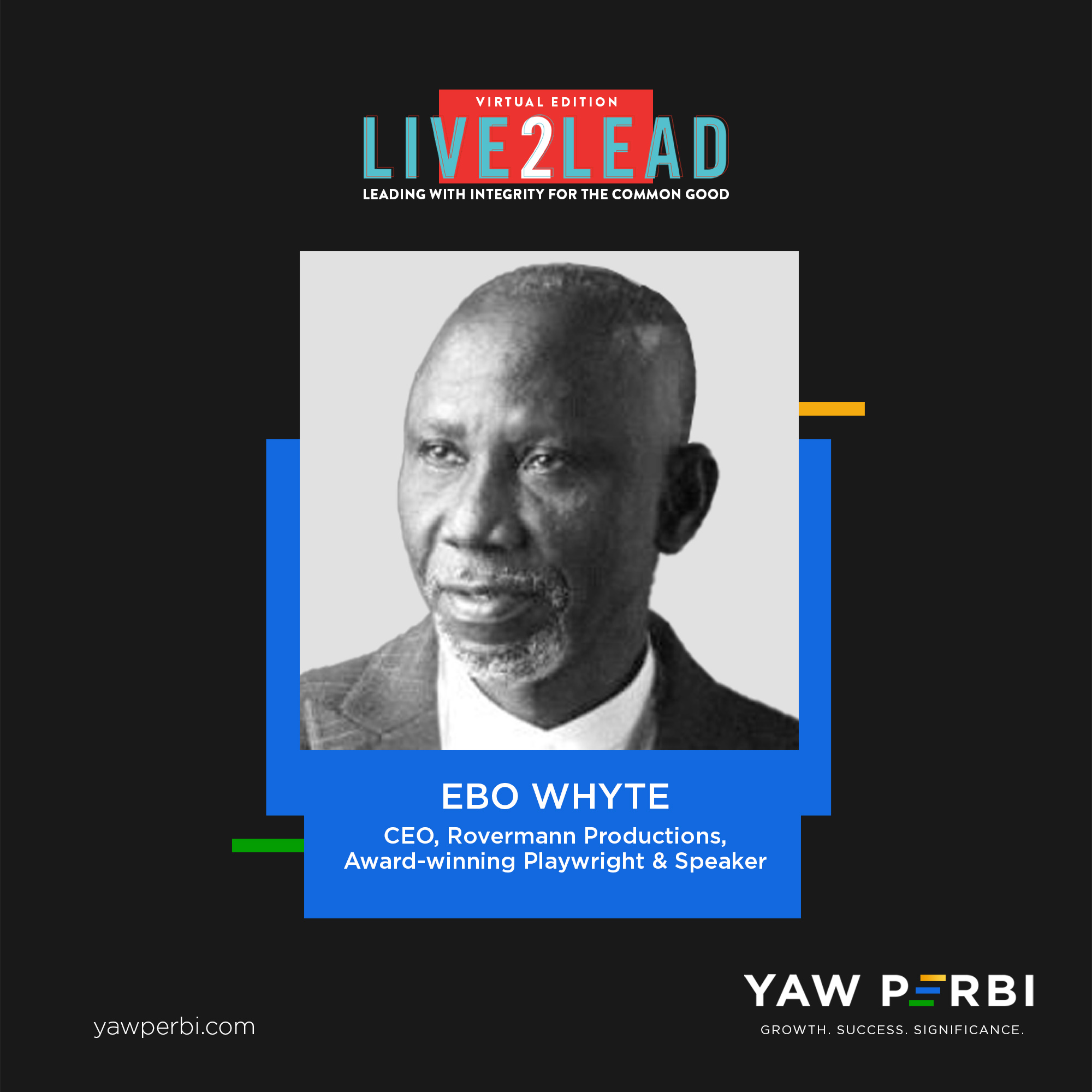
Meet Uncle Ebo, the People’s Uncle.
Everyone calls him “Uncle” without even thinking twice about it. Whether young enough to be their son or old enough to be their grandpa, “Uncle” is everyone’s uncle. A voice of reason, counsel in season, James Ebo Whyte, affectionately known nationwide as “Uncle Ebo” is the people’s uncle, hands down.
Mr. James Ebo Whyte is the CEO, heart and brain behind Roverman Productions. He is nationally acknowledged as an accomplished, award-winning playwright and highly sought-after motivational speaker. James Ebo Whyte constantly challenges Ghanaians to think more about the world they live in and the contribution they make to it. Just the day before the October 7, 2022 Live2Lead conference at which he was speaking, he unveiled to his drama troupe his 51st play in fourteen years! A hearty congratulations to the prolific playwright.
INTEGRITY IN THE ARTS & ENTERTAINMENT INDUSTRY
At Live2Lead 2022, Uncle Ebo was the only gentleman among three distinguished leading ladies from the corporate and entrepreneurship spaces as well as the public sector. Their first job was to respond to the submissions on “Leading with Integrity for the Common Good” made in the earlier hour by Patrick Awuah, founder and president of Ashesi University. Uncle Ebo held our attention as he raised issues of integrity in the arts & entertainment segment of Ghanaian society that he had with intentionality decided to counter, like giving kickbacks from corporate sponsorship. He uttered with conviction, “there are sponsorships we know we’ll never get for our plays because of this.” And he’s fine with it, as he knows that integrity comes at a cost.
One of the most amazing feats of Roverman Productions has been putting up a new play every quarter for the last decade-and-a-half and resolving to always start on time, also a matter of integrity. In fact, one of the participants at Live2Lead, a corporate governance expert, interjected that one reason she chooses to go and see Ebo Whyte’s plays is that she can guarantee they would commence on time. Again, Roverman has gone against the tide by ensuring pristine toilet facilities at their play venues and three levels of security at events to ensure patrons have a heavenly experience and leave with no bitter taste in their mouths. To the people’s uncle, excellence in these areas is a matter of integrity.
OF TEENAGE FOLLY AND GAMBLING
We intentionally wanted to leave the Live2Lead conferees on a note of hope, especially hope in Ghana, and Uncle Ebo did not disappoint. While admitting we have mega challenges in the nation he reminds us that we’ve not only been in worse times but also that in the annals of nation building globally, at 60 years Ghana is only a teenager. The national happenings that leave us in consternation are akin to teenage tantrums and this too shall pass. We do have quite a degree of national folly though, which we need to be cured of, he confesses.
Uncle Ebo’s belief in Ghana is so solid that his parting words were the following: “Whoever bets against Ghana will lose.” For a full buffet of this scintillating conversation look out for a recording of the hitherto livestreamed video (currently only available to paid participants) or invite Live2Lead to rebroadcast in your context (company, community, church etc). You don’t want to miss Live2Lead 2023 on October 6, next year, Deo volonte. Pinned on the first Friday of each October, National Leader Day after National Leader Day, building a leader at a time and one centre of excellence at a time, we shall surely get to the Ghana we want. And who knows? Perhaps sooner than other nations have.
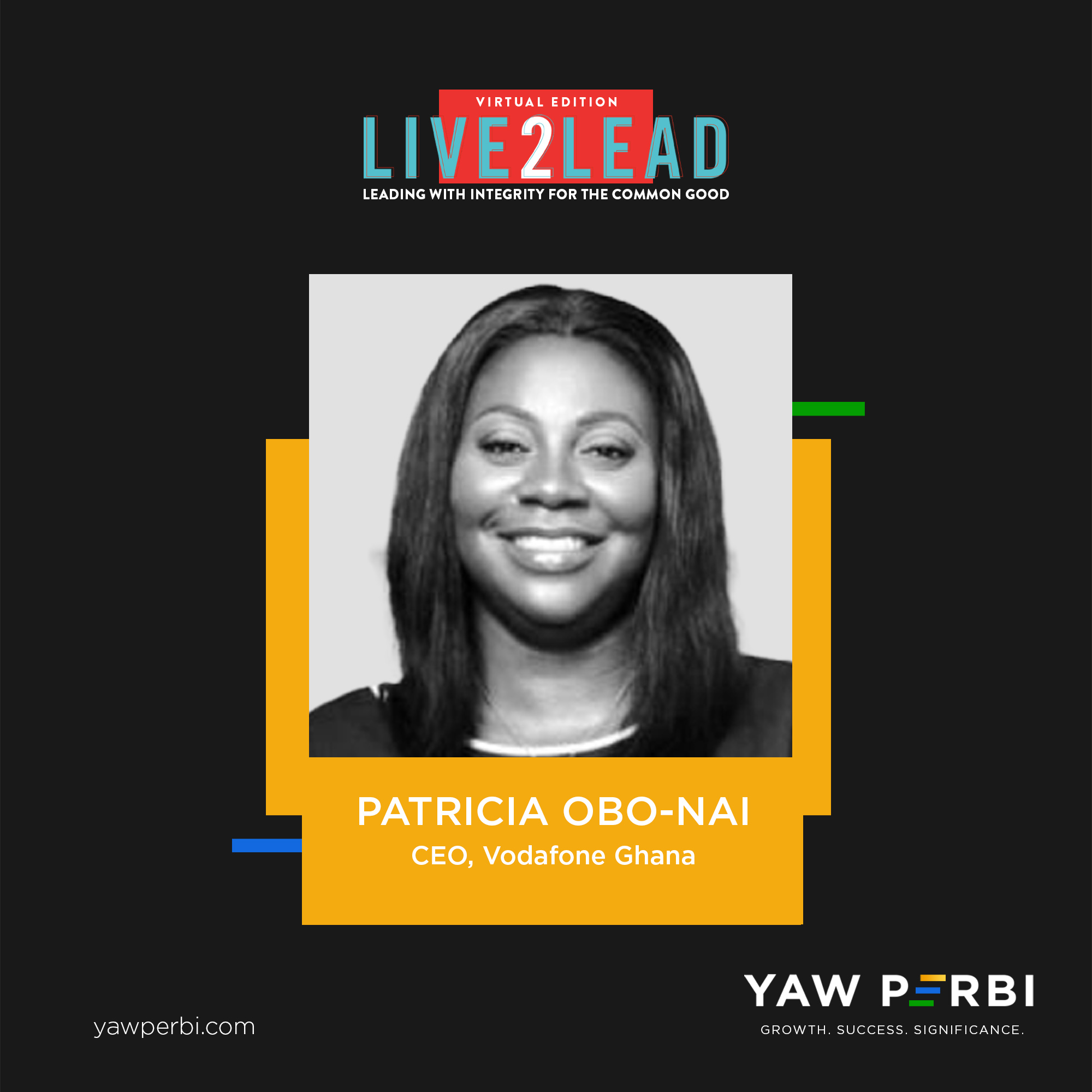
Meet Patricia Obo-Nai, Telecom CEO of the Season.
Patricia Obo-Nai is one of the most influential CEOs in Africa, a leading figure in the telecom sector. Don’t let her cool fool you. It is not for nothing that she is not only the first ever female CEO of Vodafone Ghana but the first Ghanaian to do so. Period. Her outstanding leadership has been recognized by many, including Mobile Magazine Africa, which named her the “First Lady of Mobile in Africa.”
Patricia started her career as a Network Planning Engineer with Millicom Ghana Ltd. (Tigo) in 2000. She holds a BSc in Electrical/Electronic Engineering from the Kwame Nkrumah University of Science and Technology (KNUST) and an Executive MBA in Project Management from the University of Ghana Business School. Regarding international education, she holds executive education qualifications from both sides of the Atlantic, Kellogg School of Management in the USA and INSEAD in France. Patricia is passionate about the future of young people and women in the digital age and is a vigorous advocate for STEM. She has been on several platforms, including the UN General Assembly panel sessions, advocating for youth and women.
Among Mrs. Obo-Nai’s dozen plus prestigious awards are the recent Women Leadership Excellence Award at the Ghana CEO’s Network Summit and the Africa’s Most Respected CEO Awards in the continent’s Telecommunications Industry, both of 2021. She is a CEO of CEOs.
WHAT IS GOOD TECHNOLOGY WITHOUT GREAT VALUES!
Even before getting into the so-called ‘soft’ issues of leadership, like integrity, as an electrical engineer Pat knows the hard consequences of conductors, currents, circuits, capacitors and such that have no integrity. Nothing of enduring value happens without integrity. At the October 7 Live2Lead conference this year, Patricia will exhibit through her life and leadership how “the glue that holds all relationships together–including the relationship between the leader and the led–is trust, and trust is based on integrity” (Brian Tracy).
Mrs. Obo-Nai will share how she manages to lead with integrity for the common good despite the high corruption in Ghanaian society, everywhere one turns. During an April visit to Ashesi earlier this year, the celebrated CEO of Vodafone Ghana highlighted lessons from her 20-year career. Embedded in those gems was a reminder to students about the importance of having integrity.
Tune up your personal, professional and leadership game at this year’s Live2Lead conference. Register now through this link. Nag your organization until they join this rising movement of learning leaders that will transform society by becoming a Patron of Live2Lead. A Patron company, like Patricia’s own Vodafone, is one that sends at least 10 leaders to Live2Lead. There’s no way we can have at least 100 such Patron organizations and companies in Ghana and not transform the nation, one centre of excellence at a time. Together we can change our country and continent for the better! Let’s do this! Register here, and NOW.
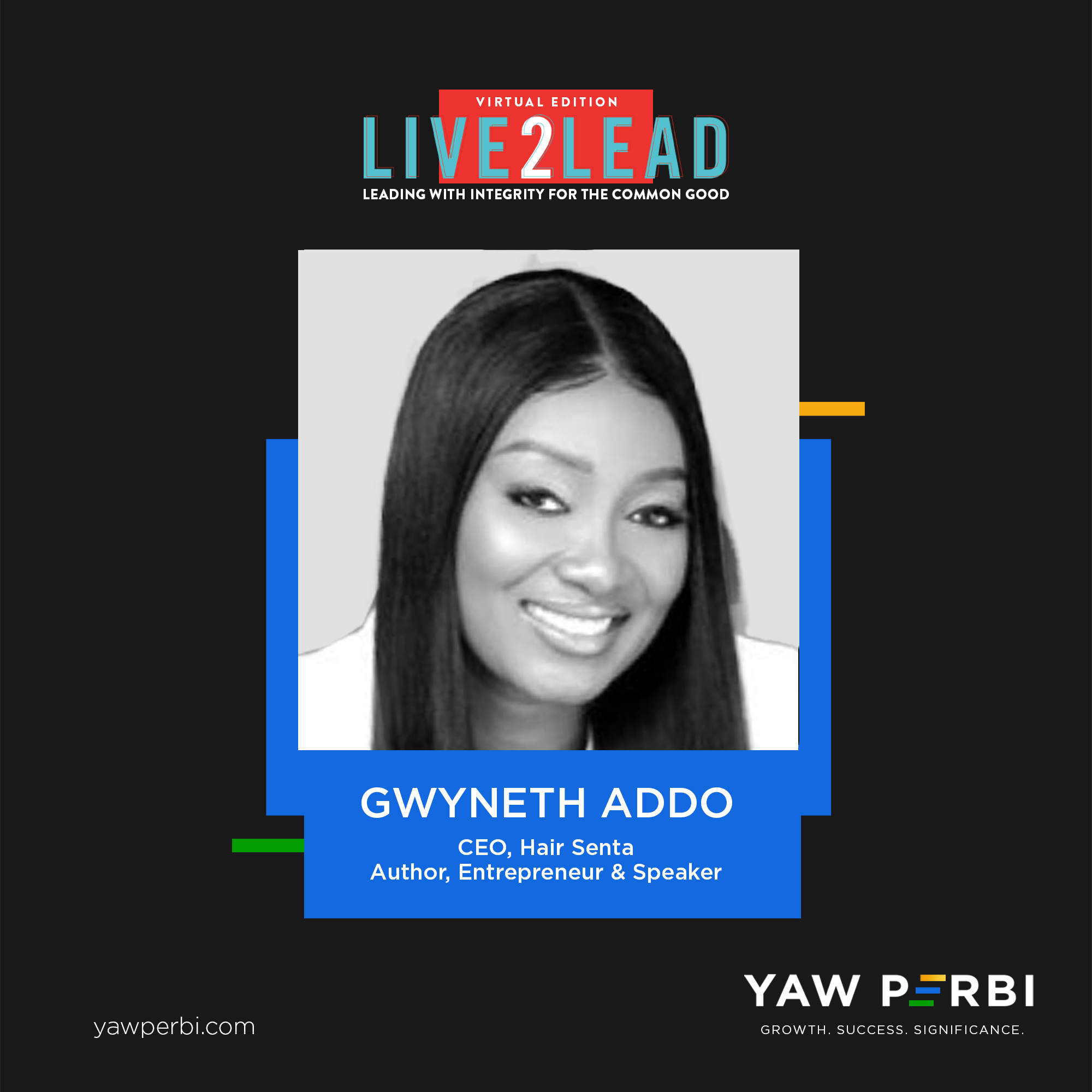
Meet Gwyneth Gyimah Addo, a Sight for Sore Eyes.
Gwyneth Gyimah Addo, often affectionately called Gwen, is a wife, mother, author, philanthropist, business leader, motivational speaker, marketing strategist and the CEO of Ghana’s leading human hair company, The Hair Senta.
After graduating from the University of Ghana, Gwen joined Standard Chartered Bank Ghana for six years. She holds an MBA in entrepreneurship and innovation from the China Europe International Business School (CEIBS) as well as an Executive Management qualification from Harvard Business School. Gwen was recently featured in a Forbes Africa interview on the global market boom of hair extensions and wigs. Her many awards include CEIBS Global Impact Award, CEIBS Most Promising Female Entrepreneur Award, and the 40 Under 40 Sales and Marketing Award.
Gwen founded the mega HIBS AFRICA global event to project the beauty industry on the continent and the Leading Senta Foundation which focuses on mentoring youth. Her first book, DIRECTION, is already creating impact in the lives of many young and adult readers. Her love, commitment, reliance and trust in the Lord is unquestionably the pivot around which her business success revolves.
WHAT YOU SEE IS WHAT YOU GET
It is hard not to like Gwen. She is absolutely winsome and authentic–what you see is what you get. This largely accounts for her over 100,000 following on Instagram, the social media platform on which she has virtually built her business. Finding high level leaders in Ghana who embody this year’s Live2Lead theme of “Leading with Integrity for the Common Good” has not been easy. Many crowd-pulling speakers did not seem to fit the bill, if we were going to be serious about walking the talk. It has been heartwarming to get to know Gwen personally, upon high recommendation from my network, and to find her a leader of integrity. The icing on the cake, for me, was to expressly read from her new book, DIRECTION, how integrity is a non-negotiable for her and the multi-million dollar business she heads.
On October 7 this year, Gwen will share her views on leadership and integrity and how she manages to remain authentic in a cut-throat society. Mrs. Gwyneth Gyimah Addo is a sight for sore eyes, literally and figuratively. Friends, we are going nowhere without integrity. For in the words of Zig Ziglar, “It is true that integrity alone won’t make you a leader, but without integrity you will never be one.”
Tune up your personal, professional and leadership game at this year’s Live2Lead conference. Register now through this link. Nag your organization until they join this rising movement of learning leaders that will transform society by becoming a Patron of Live2Lead. A Patron company or individual is one that sends at least 10 leaders to Live2Lead. There’s no way we can have at least 100 such Patron organizations and companies in Ghana and not transform it, one centre of excellence at a time. Together we can change our country and continent for the better! Let’s do this! Register here, NOW.


